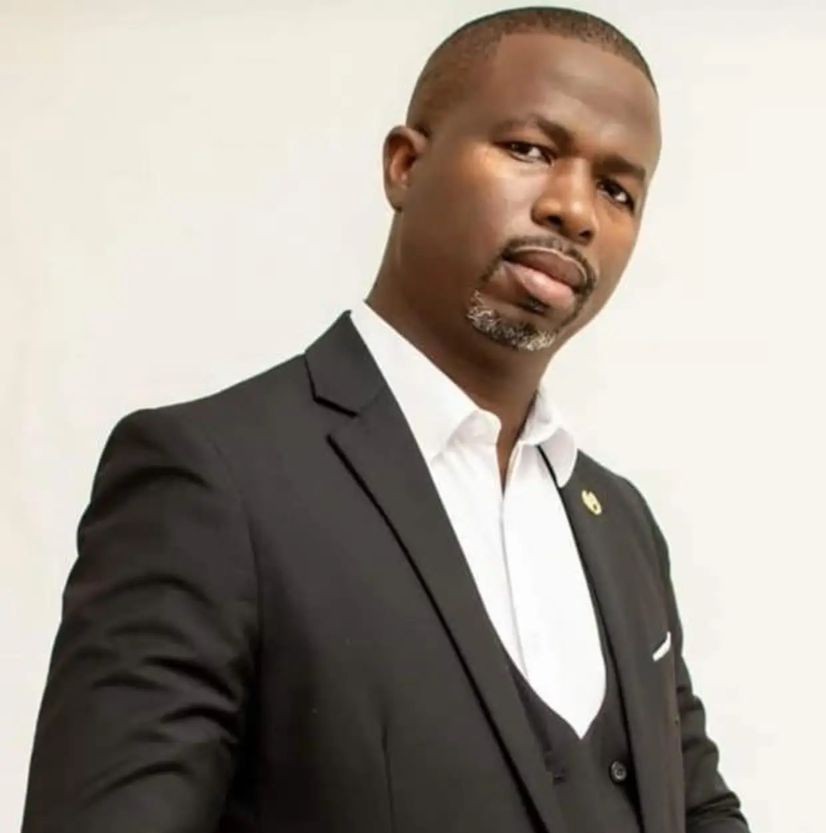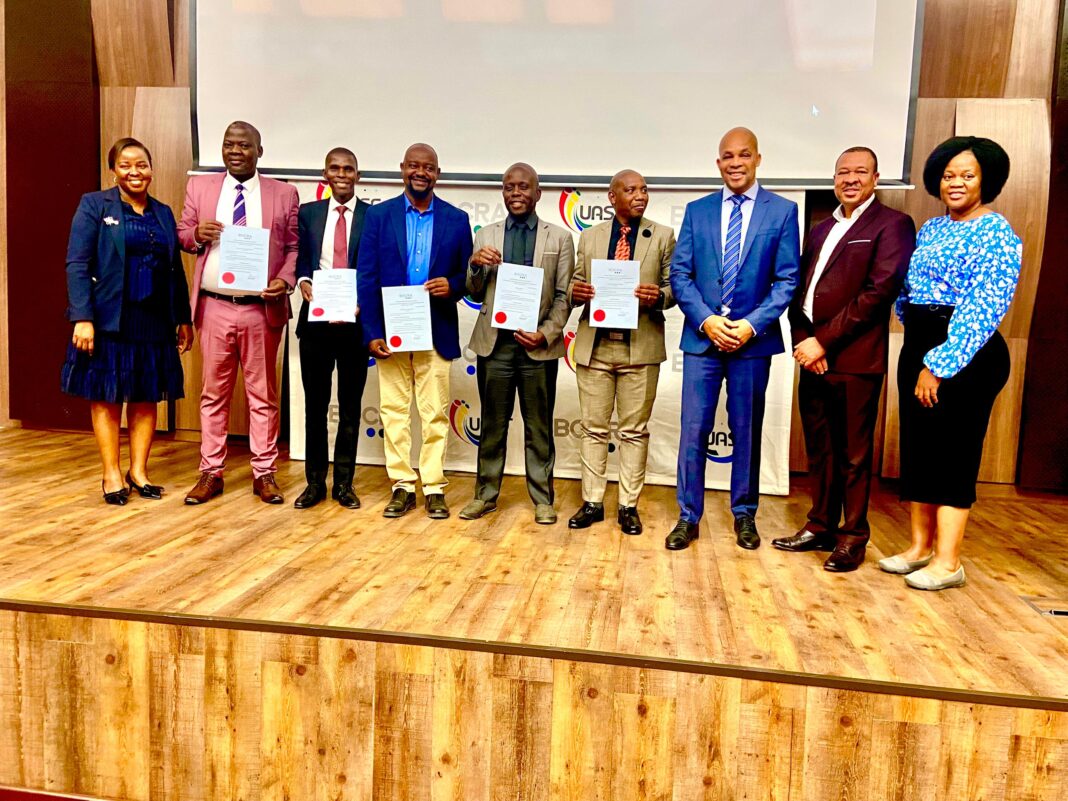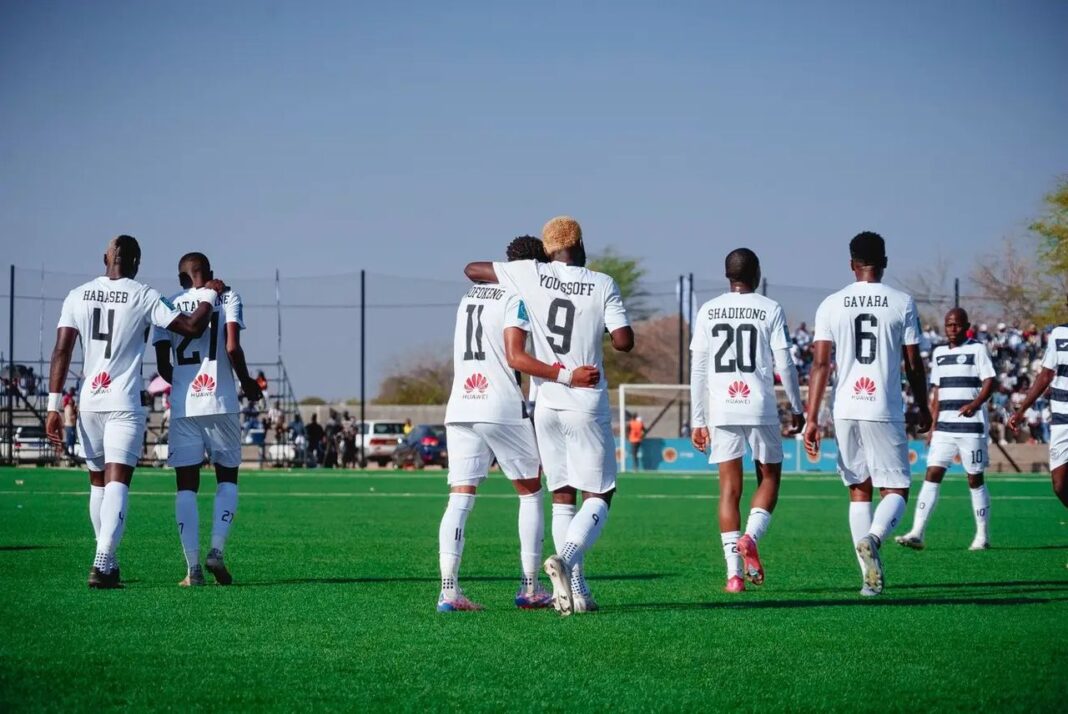Kgosietsile Ngakaagae is the new Director of Public Prosecutions (DPP). The announcement, made by the Office of the President on August 27, 2025, arrives just under a year after a historic political shift that saw a long-dominant political party unseated for the first time in nearly six decades. The appointment is a strategic move by President Boko who continues to systematically strengthen the frailties of the legal system while a forensic audit quietly runs in the background. Following today’s press conference by the DCEC one may suspect that a lot is brewing behind closed doors.
For over two decades, Ngakaagae has been a formidable force in the legal community. He began his career as a public prosecutor but more recently gained prominence as a high-profile defense attorney and a sharp public commentator. His career is defined by a deep-seated commitment to justice, showcased through meticulous defense strategies and pointed critiques of systemic failings. This new role presents a fascinating paradox: the person who once challenged the state’s prosecutorial arm will now lead it. His experience of battling the prosecution from the outside has uniquely prepared him to address the very issues that have long plagued the Directorate, such as delayed prosecutions and inadequate investigations.
A Career Forged by Principle
Ngakaagae’s professional background is extensive and multifaceted. A managing partner at his own firm, Ngakaagae & Co Legal Practice, he has gained a reputation for handling complex and sensitive cases. His expertise goes beyond general practice, with specialized training in areas like Advanced Capital Defence Training from Cornell University and courses on anti-terrorism and drugs. This technical expertise suggests that his appointment is not merely political but a recognition of his deep understanding of sophisticated crimes.
Beyond the courtroom, Ngakaagae has cultivated a public persona as a vocal and often unsparing commentator on legal and political issues. He’s used his blog to critique the judiciary and the executive, a bold stance for a practicing attorney. This willingness to challenge established power structures demonstrates a commitment to a broader vision of justice that goes beyond his legal role.
Lessons from Landmark Cases
Ngakaagae’s past legal battles provide a de facto roadmap for his future policy as DPP. His involvement in the P250 million National Petroleum Fund (NPF) scandal is a prime example. As a defense attorney, he was a fierce opponent of the State’s prosecutorial team, publicly detailing his battles with the State over what he considered heavy-handed conduct. He successfully argued that the prosecution was shifting goals by repeatedly amending the charge sheet and failing to provide his clients with the necessary details to prepare a proper defense. Having personally exploited the state’s procedural weaknesses, he now has a unique inside-out perspective on how to fix them.
Another key case was the P3.9 million Bhekizwe Nkomazana embezzlement case. Ngakaagae took over as the legal representative after the client had already pleaded guilty. His first action was to have the client rescind the guilty plea, arguing he had not been properly advised. This move demonstrated his deep commitment to ensuring due process and procedural fairness, even when a conviction seemed certain. This quality is crucial for a public prosecutor, as it shows a leader who will not be satisfied with an easy conviction but will instead ensure that every prosecution is legally sound and ethically unimpeachable.
A New Direction for Justice
Ngakaagae takes the helm of an institution that has faced significant systemic challenges, most notably delayed prosecution. This issue has, at times, led to the acquittal of suspected criminals because it took the state an unreasonable amount of time to prosecute them. As a defense attorney, Ngakaagae was able to exploit these very deficiencies. Now, he is in a unique position to address them from within.
His transition from defense to prosecution is more than a simple change of roles; it could usher in an ideological shift for the entire institution. By instilling an internal defense mindset, he can demand a higher standard of evidence collection and case preparation from the very beginning. This approach could lead to a significant reduction in acquittals on technicalities and a more robust and professional criminal justice system.
Ngakaagae’s appointment sends a clear signal that the new government is serious about prosecuting complex financial crimes. His public reputation as a lawyer willing to take on the state on behalf of clients involved in politically sensitive cases aligns him with the new administration’s stated mandate. We can anticipate a more aggressive and competent approach to tackling high-level corruption and political accountability, with a new emphasis on the very procedural fairness he once demanded.
Ngakaagae’s tenure holds the promise of a new chapter for the Directorate of Public Prosecutions. If he successfully translates his principles and experience into practice, his leadership could significantly enhance the efficiency, independence, and public trust in Botswana’s criminal justice system.



